Oregon Considers Per-Mile Tax On Fuel-Efficient Vehicles
“Everybody uses the road and if some pay and some don’t then that’s an unfair situation that’s got to be resolved,” said Jim Whitty, manager of the Oregon Department of Transportation’s Office of Innovative Partnerships and Alternative Funding.
Ah, yes. As with any number of current governmental activities, the rationale for per-mile taxation will be fairness.
Survey Says: Detroit Can't Shake The Drinking Habit - Blame The Enablers!
Demand for fuel-efficient vehicles remains strong, and the fleet of newly bought cars is taking to the streets getting a better mileage on average than a year before. The cars sold by Hyundai/Kia are most miserly with their fuel, with Volkswagen close behind. Automobiles from Detroit on the other hand stay thirsty. This is the result of TrueCar’s TrueMPG survey.
Fuel Fiasco MkII: EPA To Investigate Ford's EPA Ratings
Consumer Reports’ story about two Ford hybrids falling way short of their official 47 MPG number has attracted the EPA’s attention. The agency “will look at the report and data,” it told Reuters.
Fuel Fiasco Mk II: Consumer Reports Fingers Ford
If you know how to listen and who to listen to, you have heard for weeks that Hyundai is not the only one with overenthusiastic EPA ratings, and that other car companies might soon have to restate their MPG numbers. The carmaker mentioned most often in those whispers was Ford. Today, Consumer Reports magazine said that Ford’s C-Max and Fusion hybrids fall about 20 percent short of their fuel economy claims.
Hyundai Fuel Fiasco: Whose Shoe Will Drop Next?
“Who’s next?” This is the number one topic at the Los Angeles auto show. After Hyundai had to restate its MPG numbers and pay compensation to customers, executives and analysts are convinced that more automakers may have to do the same, reports the well-connected Reuters reporter Bernie Woodall from the back-rooms and cocktail parties in LA.
Shenanigans Notwithstanding, Hyundai Still Gets The Best Mileage
After Hyundai was caught by the EPA with the wrong fuel economy ratings on “select vehicles” (read: most of them) media outlets ( including this one) prognosticated that Hyundai would have to abdicate as king of the fuel sippers. Nothing doing, says TrueCar.
According to TrueCar’s sales-weighted rankings, Hyundai continues to put the most automobiles with the lowest fuel consumption on America’s roads – even after Hyundai and Kia had to restate their EPA window stickers, and had to give money back to customers.
TTAC Rewind: Fuel Economy Skulduggery Is Nothing New
Hyundai and Kia being called on the carpet for inflated fuel economy claims is a great story for a slow Friday; everybody likes to see a rising star get taken down a notch, and the two Koreans have been the Cinderella story of the auto industry for the last couple of years.
Small wonder then, that in 2010, TTAC reported on some suspect fuel economy figures over in Detroit, similar to what happened with Hyundai/Kia. And nothing was ever done about it.
QOTD: Time For An End To Manufacturer Measured MPG Numbers?
TTAC’s inbox was inundated this morning with reports of Hyundai’s revised mileage claims, which remove a number of its vehicles from the 40 MPG club.
According to Hyundai
Procedural errors at the automakers’ joint testing operations in Korea led to incorrect fuel economy ratings for select vehicle lines.
Maybe it’s time for a new way to measure fuel economy standards?
Do You Have The Stomach For Magnesium Trucks?
In July, the good old boy contingent was horrified to hear that Ford would contemplate building Ford tough trucks from a material considered good enough for beer cans: Aluminum. Now, they will be absolutely terrified by the news that GM wants to build trucks from a material known to treat heartburn: Magnesium.
America's Greenest Cars Still Aren't American
Producing the most fuel-sipping cars will have no impact on environment or oil reserves unless people buy those cars and carmakers sell them. This should be a truism, but too often it is ignored. Some cars are built with green halos, but with little regard for marketability. Who’s cars really are the greenest?
The Internal Combustion Engine Strikes Back
The Nikkei [sub] detected a brand-new trend: Cars with an internal combustion engine. In Japan, 20 percent of new cars sold are hybrids. Elsewhere, especially in China and Europe, hybrid cars have a bit of a hard time. “Although being environmentally friendly is important, saving money is tops,” an unnamed Nissan exec told the Tokyo wire, and added that consumers in these markets look more closely at how much they can save on fuel costs in relation to vehicle prices. Now this trend is reaching Japan.
States To Carmakers: "CNG! CNG! CNG! CNG!"
Cars that use little or no gasoline seem to have a bit of a hard time, no matter how badly people want them. 22 states decided to do something unusual: They tell American carmakers to make natural gas-powered vehicles, and the states will buy them for state fleets.
Ford C-Max Kicks Honda Civic Hybrid From 3rd Place
Ford is attacking Toyota’s miserly image. The blue oval announced today that its 2013 C-Max Hybrid crossover gets better mileage than Toyota’s Prius V, Reuters says.
Jaguar Remembers To Neuter And Spay Its Cats
The era of V8 hegemony is over at Jaguar; the current lineup, which offers no alternatives with fewer than 8 cylinders or 5.0L of displacement, will be getting two new engine offerings – including a 4-cylinder option.
Huge Sunroofs Can Burn You At The Pump
That huge sunroof on top of you greenhouse could cost you more than just a few extra $$$$. It could ruin the car’s mileage, says a new report. “Automakers may be obsessed with cutting vehicle weight,” writes Automotive News [sub], “but they are happily packing on pounds in one place.” Those added lbs will mean increased gals, and not the female kind.
Forget Quality, Safety: Car Buyers Care Most About Mileage, Mileage, And Mileage
Fuel economy now is the leading factor that drives new car decisions, a study by Consumer Reports says. “Fuel economy” ranks top by a wide margin, followed far behind by quality, safety, and value.
The factors that trigger premature ejaculations in basement-dwelling, Gran Turismo playing phantasy car buyers, namely performance, design, and technology, are also-rans.
Americans Get Most Mileage Out Of Foreign Cars
When April sales data came out, a lot of noise was made of the shift towards gasoline-sipping small cars. Shrill voices feted sales of electric cars, which look like a rounding error, as a win in the war on terror. As so often, the truth is different. The new cars that hit the road in April get, on average, slightly less mileage (23.3 mpg) than those sold in March (23.4 mpg). If the war on terror would honestly be waged on dealer lots, then the true heroes would be foreign mercenaries, with Americans occupying rear echelon slots.
High Gas Prices Can Destroy Relationships
More than half of new car shoppers have recently changed their minds about the car they want to buy, says a new study by Kelley Blue Book. Researches find customers thinking about cars they normally would not have considered. What is changing their minds en masse: Rising gas prices.
Enslaved At The Pump: How Many Years Until You Will Go Free?
There are automakers that treat you like a moron. They sell you a fuel saving package that costs so much and/or saves so little that you won’t see the savings until you and the car are ancient. As some comments will surely prove, there are people who like to be treated as morons. For those, some alleged fuel saving packages serve a purpose. Some like to be insulted, whipped and charged $800 by a dominatrix, others prefer the same treatment from a dealer. Nothing wrong with it amongst consenting adults.
The Cars You Get The Most Mileage Out Are Not American
“Gas prices are nearing $4 per gallon nationwide and consumers are getting reluctant to pay any additional money at the pump when buying a new vehicle,” said Jesse Toprak of TrueCar. This changes buying pattern, and it might influence election results. Important as the topic may be, foreign carmakers continue to give you the most mileage. American carmakers lag .
Fiber Fever: Carbon Goes Mainstream
For a long time, carbon fiber was a high tech, high cost product. Slowly, carbon fiber is going mainstream. From Volkswagen to Toyota and GM, large automakers have carbon fiber projects in the works. Now, Ford is joining the bandwagon made from lightweight fiber.
Ford joined up with fiber specialist Dow Chemical “to develop cost-effective ways of using carbon fiber in high-volume cars and trucks as the No.2 U.S. automaker moves to cut vehicle weight to improve overall fuel economy,” Reuters writes.
First Hybrid Yaris Rolls Off Line In France
TTACers have known it for quite some while: Europeans won’t get a Prius C / Aqua compact hybrid, they will get a hybrid Yaris. Today, the first one rolled off the line at Toyota’s plant in Valenciennes, in the north of France.
Want To Save Gas? Don't Buy American - Announcing The True Heroes And True Villains At The Pump
Some automakers have cars that get a stupendous mileage, but they are priced or built so that nobody wants them. We won’t name names, draw your own conclusions. A much better metric than the mileage of a car is the mileage of all cars you sell. The combined mileage of all cars sold by a manufacturer or brand used to be a top secret document. Manufacturers with stellar averages sometimes leaked theirs. But what good are these statistics if manufacturers with mediocre averages hide their data? Thankfully, last year TrueCar started tracking the MPG averages of cars sold in the U.S. And it is coming to surprising results.
Quote Of The Day: "Five Years From Now, When I'm Not President, I'll Buy One Myself" – Obama On The Chevrolet Volt
You heard it yourself. When Obama is out of office, he’ll buy a Chevrolet Volt and drive it himself. The Secret Service, which famously wouldn’t let Obama drive the Volt down the Hamtramck assembly line, generally protects the President for up to 10 years after they leave office – we’d assume that the “no driving” clause applies here. So Obama’s Volt may sit for a long time – hopefully it won’t brick.
Meanwhile, the DoE’s projection of 120,000 Volts produced in 2012 (let alone sold to consumers) still looks a little optimistic. GM just restarted production of the car a few days ago. Their sales target of 45,000 in 2012 has been abandoned after coming 2,300 units short of their 10,000 unit goal in 2011. GM now says that they will adjust “supply to meet demand”.
Florida Congressman Allen West Blames Obama For $70 Hummer H3 Fill-Up
Florida Congressman Allen West is blaming President Barack Obama for paying $70 every time he wants to fill up his Hummer H3. Not surprisingly, media outlets, as well as commenters on West’s Facebook page, are up in arms.
Pumpcast Newsbreak: Ford And Toyota Sink To New Lows
MIT Professor: Put Cars On A Diet!
The car industry is under pressure to improve fuel efficiency. It is not that they have been sitting on their thumbs. Automakers have achieved large increases in fuel efficiency through better technology in recent decades, says MIT economist Christopher Knittel.
The problem is:
“Most of that technological progress has gone into compensating for weight and horsepower.”
Future Volvos Powered By Turbocharged Modular 4-Cylinders
Amid Volvo’s announcement of a plug-in hybrid for markets besides diesel-loving Europe came another tidbit about the lone Swedish brand’s future direction. Rather than 5, 6 or 8 cylinder engines like years past, Volvo will be downsizing, much like BMW – and using modular engines to boot, much like their Bavarian rivals.
Chevrolet Volt Misses 2011 Sales Target By 2,300 Units, Outsold By Nissan Leaf
Wamp wamp! That’s the sound of the sad trombone playing for the Chevrolet Volt, which missed its 2011 sales target by 2,329 units. General Motors hoped that the Volt would sell 10,000 units in 2011, but it was not to be.
Bloomberg reports that the bow tie brand sold only 7,671 Volts in 2011, but has plants to increase annual production to 60,000 units annually. 45,000 of those will be sold in the United States. The Volt had only been on sale nationwide for the final three months of 2011.
Volvo XC60 Plug-In Hybrid: Because Wagons Don't Play In Peoria
There was ample hand-wringing when Volvo announced the death of their iconic station wagon in North America. While enthusiasts mourned the death of a cult classic, Volvo also announced a plug-in hybrid version of their V60 wagon, powered by a diesel engine and a hybrid drivetrain. Naturally, this vehicle was not destined for sale in North America.
The non-available V60 plug-in constituted the ultimate slap in the face for the Volvo faithful. Here was the newest generation of Volvo wagon (as opposed to the warmed over XC70 offered recently) with an environmental bent and the Euro-cachet of a diesel engine – but where was it? As Jamie Kitman of Automobile magazine rightfully pointed out, their core buyer is “green” but refusing to import such a vehicle may not be “lunacy”, because the Swedes have something more suited for American tastes – the same hybrid goodness, packaged as a gasoline-powered crossover.
The Engine Empire Strikes Back: Honda Battles For Engine Technology Relevance
It’s been a few years since we last detected much of a pulse from Honda [Ed: in fact, Paul Niedermeyer declared Hyundai the “new Honda” in terms of engine technology leadership way back in 2009]. But just when we were wondering if all hope was lost, and that it might be time to pull the plug…signs of life. In Japan, for the Tokyo auto show, Honda has unveiled ambitious new powertrain plans [via Automotive News [sub]].
Mazda Uses Capacitor To Save Gas
Toyota’s Chief Engineer Satoshi Ogiso figures that efficiency improvements of traditional gasoline engines may soon hit a wall. He gives the gasoline engine an improvement potential of “maybe 10 to 20 percent.” Today, we have proof that it is a fight of diminishing returns. Mazda is now at a point where it saves up to 10 percent of gas by idling the alternator. How is that done?
Data Of The Day: An Interactive Map Showing EV/Hybrid Sales By Location
Everyone knows TTAC hearts data, so this little NPR/Edmunds collaboration, which maps hybrid and EV sales by locality, is right up our HOV lane.
Never Mind The Growing Gap Between Oil Production And Consumption, Here's The SLS Black Series
Last Monday, we regaled you out with stories of Toyota coming to grips with the “new peak oil,” and other topics related to the growing gap ( or lack thereof?) between global production and consumption oil. This week I’m feeling a little less apocalyptic, and little bit more indulgent. And really, why not celebrate those precious hydrocarbons while they’re still cheap and plentiful? This Mercedes SLS AMG Black Series may burn ’em by the bushel, but it sure sounds good doing it. And though cars like the forthcoming 650 HP Shelby Mustang GT500 prove that performance is still alive in the 21st Century, high-revving, large-displacement, naturally-aspirated V8s like the AMG Black’s are going to be facing special challenges under future emissions standards. Which makes its gargling, chortling music all the sweeter to my ears…
Volkswagen Agrees With Toyota - On Future Technology
Volkswagen had painted a bulls-eye on Toyota and wanted to beat the Japanese by 2018. At least in terms of production numbers, Volkswagen will have Toyota beat this year. Instead, VW has to contend with GM.
The long-term new energy strategy of Volkswagen and Toyota on the other hand could have been devised in a joint planning session. Volkswagen believes that near-term, the plug-in-hybrid has a great future, whereas Volkswagen’s CEO Martin Winterkorn won’t live long enough to witness the boom of the pure electric car.
The German newspaper Handelsblatt has an interview today with Winterkorn. It echoes in large parts the interview which I had ten days ago with Toyota’s Chief Engineer Satoshi Ogiso. The two sound amazingly similar: Bullish on plug-in hybrids. Cautious on EVs.
Honda Launches Fit EV, But Civic GX Takes Green Car Prize
EPA Releases 2017-2025 CAFE Proposed Rule
Over the last few days we’ve been discussing the implications of the growing gap between global oil demand and production, looking at the responses of a global automaker, a radical startup and the oil industry itself. And make no mistake, it’s an uncertain future out there… unless you’re selling cars in the US. In that case, your future just arrived, planned all the way through 2025. That is, if you think this proposed rule will survive four presidential elections and one industry-government “mid-term review.” Want to familiarize yourself with this pre-planned fuel economy future? All 893 pages await your perusal, in PDF format here. Or, hit the jump for a few broad strokes.
Anwyl: Should We Be Preparing For The Next Gas Price… Collapse?
The big news around here yesterday came from Bertel’s interview with Toyota’s Chief Engineer, in which it became clear that Toyota takes the developing world’s growing demand for oil very seriously. With global demand already outstripping supply, the giant automaker’s embrace of a petroleum-constrained business model seems to make it clear that gas prices will play a significant role in the future. But markets are, by their natures, both difficult to predict, and shaped by predictions. And Edmunds CEO Jeremy Anwyl reckons that, although gas prices are high and could well go up in the short term, fears of a runaway gap between supply and demand may not materialize over the longer term. He writes:
Here’s the twist: As I said, the consensus belief (or story) on future oil prices is that they will be higher. And short term, this may be the case if and/or when the global economy recovers and/or demand grows in emerging markets.
But there is a longer-term story as well. This story suggests that peak oil may be nigh and the future holds shortages and sharply higher prices. Buying into this story, companies, acting individually, will see profit in expanding exploration, developing sophisticated new extraction technologies, etc.
The aggregate result of all these individual activities is that the future supply of oil will improve and prices will actually drop.
In fact, we have seen this paradox play out before. Through the Seventies, we were first shocked by rapid price increases and then conditioned to believe they would continue. And, of course, oil prices collapsed in the Eighties.
Wild-Ass Rumor Of The Day: Scion And Daihatsu Considering Joint Small Pickup For US?
Toyota Targets 2015 Fuel Cell Sales… At A Six-Figure Price Point
Jaguar Goes Front-Drive… Again
The last time Jaguar built an entry-level car based on front-drive architecture, it built the X-Type, a car that was nearly universally panned as “not quite a real Jaguar.” At thee time though, Ford was desperate to make a little money on its Premier Auto Group, and bringing Jaguar downmarket was the only way to do that relatively cheaply. And, all things considered, it could have been a lot worse: at least Ford was working from a good basis in the form of the Mondeo (Contour), which at the time was considered one of the better driving mass-market sedans. But if anything, the fact that the Jaguar brand was being used as Ford’s corporate pawn was a big part of why the X-Type flopped (the company’s overly-earnest insistence that the X-Type was in fact a ‘proper Jag” (see above) didn’t help either). And flop it did: sales topped out at 33k units in the US, and enjoyed only four years of rapidly-declining five-digit sales. While reviewers like Robert Farago used terms like “laughable distraction” to describe the baby Jag.
But those who don’t learn from history are destined to repeat it. Now owned by India’s Tata Motors, Jaguar is once again aiming at the entry-luxury market, and it’s planning… a front-drive sedan.
Are You Ready For: Nissan's Supercharged Hybrid?
Of all the Japanese automakers, none are as far behind on hybrid technology as Nissan. For some time there was a sense that Nissan’s (relatively) huge investment in electric vehicle production would represent a “leapfrogging” of hybrid technology, but now the firm is using the common industry response to questions about future technology: a suite of options, rather than one single technology, will meet tomorrow’s low-energy transportation needs. As a result, Nissan’s been playing catchup, as it admits in a recent press release [ PDF]
“We must have a tougher job than any other hybrid team in the industry,” says Mitsunobu Fukuda, a senior powertrain engineer at NATC. “Because our CEO, Carlos Ghosn, used to be known as skeptical about the value proposition of hybrids we had to make a really compelling case that we could deliver value to customers to get him to validate a hybrid program.
In 2004, as a stopgap measure, Nissan licensed hybrid technology from Toyota for use in certain markets.
“It was a bit of a blow to our pride, but that was the right thing to do under the circumstances,” Fukuda says.“Instead of rushing out a ‘copy-cat’ hybrid we wanted to take the time to develop our own hybrid, one that is clearly different – and better. I think we’ve managed to do that.”
What makes Nissan’s forthcoming hybrid system so different? For one thing, it uses Nissan’s “one motor, two clutch” system (currently found only on the Infiniti M Hybrid), which enables a compact design. For another, it’s supercharged.
Head Of Global Industry Body Says U.S. Makers Lose Their Moxie
The president of the International Association of Vehicle Manufacturers OICA says that U.S. auto makers risk being left behind. In an interview with Wardsauto, OICA-head Patrick Blain warned that European and Asian car companies are setting the pace while working together with their governments to reduce emissions and rising fuel costs.
OICA is the world’s umbrella organization of all auto manufacturer associations. OICA also represents the global auto industry at the United Nations. As OICA president, Blain is the auto industry’s ambassador to the UN.
Ask The Best And Brightest: Does Anyone Actually Get 40 MPG On The Highway?
What’s the most powerful number in automotive marketing? No, not zero, as in “zero down, zero percent interest”… the answer we’re looking for is 40, as in “40 MPG hwy.” With the compact segment heating up, 40 MPG on the highway is very nearly a price of entry… if your base model doesn’t achieve the magic number, you’d better have a special edition that does. But even as “40 MPG” becomes more and more important as an industry benchmark, it inevitably raises a perennial question: do EPA numbers mean anything in the real world? Hyping the highest possible number rather than a “combined” figure is a classic marketing move, but one that risks exposing the EPA highway number as a meaningless metric. And if nobody actually gets the rated efficiency, it’s only a matter of time before the market begins to demand more accurate reporting.
66 House Reps Move To Block 2017-2025 CAFE Proposal
The Detroit News reports that 66 US Representatives wrote to the House Appropriations Committee today to urge a measure blocking the EPA from regulating fuel economy in the 2017-2025 period. The letter, signed by 64 Republicans and three Democrats requests
A one-year ‘time out’ is necessary as EPA and (California) are setting national fuel economy standards without explicit authorization by Congress, under laws not designed to regulate fuel economy
According to the DetN, “the proposal would let the National Highway Traffic Safety Administration go forward with setting fuel economy requirements, but under the law it could only set new requirements through 2021.” And unlike past battles over CAFE, opposition this time around does not appear to be coming from the OEMs, but from NADA, the new car dealer lobby group. The only OEM to not sign onto proposed 2017-2025 standards is Volkswagen, which is reportedly in talks with regulators over the proposal.
Quote Of The Day: Chrysler's Fuel Economy Crunch Edition
As the automaker that’s least-prepared for upcoming increases in federal fuel economy standards, it was more than a little surprising to find that Fiat’s five year plan for Chrysler did not involve any significant plans for hybrid drivetrain development. But more recently, CEO Sergio Marchionne has said a hybrid Chrysler 300 would be offered in 2013, and the firm hooked up with the feds to work on a hydraulic hybrid drivetrain. And though new CAFE regulations offer generous credits for hybrid pickups, a policy choice that rescues Chrysler’s investment in “Two Mode” hybrid technology, more will have to be done. For, in the words of Marchionne [via Automotive News [sub]],
I have no other way of getting to 2025 numbers than by going to hybrids
But Chrysler won’t rely fully on hybrids in order to make the significant fuel economy improvements it needs. In fact, it will be relying as much on diesels and compressed natural gas (CNG) drivetrains as anything else.
Will Chevy's Cruze Diesel Be A "Game Changer"? Lutz Thinks Not
It’s a phenomenon with some precedent: import manufacturers will get nowhere with a certain bodystyle or drivetrain until one of the US domestic brands jumps on the bandwagon and popularizes it. And Jeff Breneman, executive director of the U.S. Coalition for Advanced Diesel Cars, is hoping the same dynamic plays out in the world of diesel power when Chevy brings its Cruze Diesel to the US. He tells WardsAuto
The fact that Chevy will offer a diesel Cruze in 2013 is huge. The gas-powered Cruze will get 40 mpg (5.9 L/100 km), so the diesel is expected to get 50 mpg-plus (4.7 L/100 km), and that will make it a game-changer.
Ford, Toyota or Honda haven’t got a diesel for the U.S. yet, but get ready for 2013-2014. That’s when we’re going to see a lot more diesels.
And, as the diesel booster-in-chief, it’s not surprising that Breneman would come to that conclusion. But what are folks inside GM saying about the Cruze diesel? In a recent interview with TTAC, senior advisor Bob Lutz suggested that we shouldn’t expect the Cruze diesel to conquer America or “change the game” all that much.
Fisker's Sticker Shock: 32 Miles On Electricity, 20 MPG On Range Extender
The Chevy Volt’s best news in ages broke yesterday when GreenCarReports, er, reported that the Fisker Karma had received EPA approval at 32 miles of EV range, and 20 MPG (combined) thereafter. Moreover, the MPGE (the “e” is for “equivalent”) rating of 52 on electric power is nearly half the Volt’s 94 MPGE rating, suggesting that the Karma is not the most efficient car even in EV mode. And, at nearly 5,600 lbs (per evo.co.uk), you don’t have to look far to find out why. But if you ask Fisker, the problem isn’t the car… the problem is those darn EPA numbers, which you should probably just ignore anyway. After all, nobody drives less efficiently than their car’s EPA numbers, right?
European Market Volt Gets EV-Only "Hold Mode," Should The US Version?
In an era of increasingly-globalized automobiles, the “market-to-market adjustments” which modify a global vehicle to “local tastes” are becoming an interesting source of insight into a company’s perspective. And Chevrolet Europe boss Wayne Brannon revealed one of the more significant adjustments in recent memory (because nobody reads the press releases), when he told Automotive News [sub]’s Dave Guilford
I just switch it into extended range mode, and I drive on fuel until I get there. When I drive in the little villages and towns, I drive in electric mode.
The reason it was important here is we have cities — like London — where you don’t have to pay a congestion charge if you’re running purely on battery. You save the battery for when you need it.
Gosh, that’s an interesting idea. It would certainly help clear up some of the confusion in the marketplace about why the Chevy Volt is the way it is. Imagine the tagline: “Gas or electric? You decide.” So, how about it, GM? Will that feature come to the US?
Fuel Economy: It's Your Problem Too
A University of Michigan study [ PDF] shows that, in the 85 years between 1923 and 2008, average on-road fuel economy in the US has improved a mere 3.5 MPG. In fact, the study shows that driving a car is even more energy-intensive (per occupant-mile) than flying on an airplane (3,501 BTU per mile versus 2,931 BTU per mile). Some will blame weak government regulations for this unimpressive result, but the study found that the convenient government scapegoat is not completely to blame.
This report presents information about the effects of decisions that a driver can make to influence on-road fuel economy of light-duty vehicles. These include strategic decisions (vehicle selection and maintenance), tactical decisions (route selection and vehicle load), and operational decisions (driver behavior).
The results indicate that vehicle selection has by far the most dominant effect: The best vehicle currently available for sale in the U.S. is nine times more fuel efficient than the worst vehicle. Nevertheless, the remaining factors that a driver has control over can contribute, in total, to about a 45% reduction in the on-road fuel economy per driver—a magnitude well worth emphasizing. Furthermore, increased efforts should also be directed at increasing vehicle occupancy, which has dropped by 30% from 1960. That drop, by itself, increased the energy intensity of driving per occupant by about 30%
Could Fuel Efficiency Save Racing?
With Audi and Peugeot dominating the last several Le Mans races using diesel technology to outlast the competition, it seems that the famous French race is becoming the premiere stage for developing and highlighting the latest fuel-saving technology. And why not? Most marketing of new fuel-saving technology highlights the preserved performance and enhanced reliability as much as pure energy savings alone. And leadership in this suite of attributes is about to receive a little more competition, as Toyota announces that
In 2012, Toyota will take part in several races of the FIA World Endurance Championship, including the Le Mans 24 Hours, with a prototype “LMP1” car featuring a gasoline-electric hybrid powertrain.
Get Hyundai on board, and bring BMW’s new i brand into the mix, and the international racing business could be re-energized by the competition to demonstrate the perfect compromise between performance, reliability and efficiency. As many of the top racing series see declines in viewers and manufacturer participation due to their increasing irrelevance to mass-market vehicles and brands, the golden age of endurance racing could just be dawning.
Steel Industry: Replace Tailpipe Emissions Testing With Lifecycle Analysis
Light-weight materials such as carbon-fiber, aluminum and magnesium are widely touted as key components of the drive towards greater fuel economy. Which explains why the automotive steel supplier industry is suddenly calling for an end to tailpipe emissions testing and a switch to the more holistic life cycle analysis testing. According to a press release from WorldAutoSteel, an industry group, the production of steel alternatives can create up to 20 times the carbon emissions of steel.
Chevy-Dealing Congressman: "There Is No Market" For The Volt
In addition to being a representative from Pennsylvania, Republican Mike Kelly is also a Chevrolet dealer whose family has sold Chevys since 1953. But in recent hearings on government fuel economy ratings, he laid into his brand’s green halo car, the Chevy Volt with surprising zeal. Or, not-so-surprising, when you realize that he decided to run for congress in the wake of the bailout-era dealer cull.
I’m a Chevrolet dealer… we have a Chevy Volt on the lot, it’s been there now for four weeks. We’ve had one person come in to look at it, just to see what it actually looks like… Here’s a car that costs $45,763. I can stock that car for probably a year and then have to sell it at some ridiculous price. By the way, I just received some additional information from Chevrolet: in addition to the $7,500 [federal] tax credit, Pennsylvania is going to throw another $3,500 to anybody foolish enough to buy one of these cars, somehow giving them $11,000 of taxpayer money to buy this Volt.
When you look at this, it makes absolutely no sense. I can stock a Chevy Cruze, which is about a $17,500 car and turns every 30 to 40 days out of inventory… or I can have a Volt, which never turns and creates nothing for me on the lot except interest costs… So a lot of these things that we’re seeing going on have a tremendous economic impact on people who are being asked to stock them and sell them. There is no market for this car. I do have some friends who have sold them, and they’re mostly to people who have an academic interest in it, or municipalities who are asking to buy these cars.
With dealers like that, who needs competitors? Seriously, Kelly even says he fired the guy who ordered a Volt for his dealership… which he then counts against the Volt’s job creation record. Hit the jump for the rest of his quote.
Anwyl: CAFE Proposals "Ignore Consumers" Who Are "Not On Board"
The Congressional Subcommittee on Regulatory Affairs, Stimulus Oversight and Government Spending held hearings this week on proposed CAFE standards, as part of Chairman Darryl Issa’s investigation of the regulations. The first panel’s testimony can be seen in its entirety in the video above (all prepared testimony can be found in PDF format here), and it’s worth watching. Though the predictable D.C. partisanship certainly shows up, Anwyl’s testimony was the highlight the hearing, being a tough but fair analysis of the standards. Hit the jump for a brief roundup.
Veloster Turbo Makes Its Video Debut
Michael Karesh may have been one of the few writers to review the Hyundai Veloster without the expectation of a truly sporting drive, but even he concludes that
Those who insist on go with their show needn’t despair, only patiently wait for the turbo Hyundai’s not yet talking about.
Because Hyundai’s European executives started talking about a turbo version prior to the launch date, and Hyundai Motor America still rolls its eyes at the mere mention of a turbo Veloster, I wasn’t optimistic. But between a recent explosion of US-based spy shots of Veloster Turbo mules (both in Death Valley and near HATCI in Michigan) and a 210 HP ARK Performance-tuned Veloster Turbo heading to SEMA, I’m beginning to share Karesh’s opinion that the Veloster Turbo is an inevitability for the US market. Besides, Hyundai has earned a little fuel-burning frivolity: its year-to-date combined full-fleet fuel economy (CAFE) is 35.9 MPG, just over the 2015 standard of 35.5 MPG.
It's Tensile War! Who Has The Stronger Steel?
A day after Mazda had announced that the company “has become the first automaker to successfully develop vehicle components using 1,800 MPa ultra-high tensile steel,” Nissan announced “the world’s first Ultra High Tensile Strength Steel rated at 1.2 gigapascals (GPa).” So who’s on first?
5 minutes of in-depth research revealed that 1,800 MPa equal 1.8 GPa. In the heavy metal business, those Gs are similar to gigahertz or gigabytes in computers: The more, the merrier. Whether Mazda has outdone Nissan or v.v. is also a bit like Pentium and Athlon: It depends. What matters is that cars get both stronger and lighter
Three topics give a car engineer sleepless nights:
Ask The Best And Brightest: What Is Obama's "130 MPG" Battery?
When the blogging gets tough, the tough bloggers get outsourcing, and since we’re swamped with fresh news and sales numbers, I’m going to throw this little mystery over to you, TTAC’s Best and Brightest. It’s no secret that the Obama Administration is bullish on plug-in cars, as it seeks to put a million of the fuel-efficient vehicles on the road by 2015. And though several studies have shown that the White House’s goal is wildly overambitious and needs more money or a major spike in gas prices, and though even the DOE’s assessment shows that the goal is unrealistic, EV optimism springs eternal. So, whence cometh this profound, unshakeable belief that the EV is going to go from production-constrained curiosity to significant market player in just a few years?
EPA Inspector General Questions GHG Emissions Science, Issa Attacks On All Fronts
In a report released earlier this week [ PDF], the EPA Inspector General criticized the Technical Support Document for the portion of greenhouse gas regulation dealing with “Endangerment,” or the possible effects of greenhouse gasses. Inspector General Arthur A. Elkins Jr. summed up his office’s findings [ PDF], writing
The OIG evaluated EPA’s compliance with established policy and procedures in the development of the endangerment finding, including processes for ensuring information quality. We concluded that the technical support document that accompanied EPA’s endangerment finding is a highly influential scientific assessment and thus required a more rigorous EPA peer review than occurred. EPA did not certify whether it complied with OMB’s or its own peer review policies in either the proposed or final endangerment findings as required. While it may be debatable what impact, if any, this had on EPA’s finding, it is clear that EPA did not follow all required steps for a highly influential scientific assessment. We also noted that documentation of events and analyses could be improved.
Oy vey. Greenhouse gas science controversy. So, what’s the problem really about?
White House Delays CAFE Announcement As Jobs, Downsizing Achievments Come Under Fire
Though the Obama Administration has announced the broad outlines of its 2017-2025 CAFE standard, the final rule wasn’t supposed to be released until the end of this week… and now, according to Reuters, it is delaying that release until mid-November. According to Reuters
The administration would, with a short delay, remain on track to meet its deadline for issuing final rules next July, five years before they take effect. That timeline gives the industry room to plan its vehicle mix and make any production or technology changes…
But sources familiar with the matter said the work is complex and time consuming. Regulators, they said, are purposely moving slower than anticipated to ensure that industry, environmental and consumer issues likely to be raised during a lengthy public comment period are addressed ahead of time.
Regulators also want to make sure the proposal can clear the White House budget office, which reviews proposed regulations, in a timely fashion.
But even as regulators work to anticipate criticisms of the new standard, more criticisms are materializing. From the mitigating impact of loopholes added late in the process to the regulation’s effect on jobs, the CAFE criticisms are stacking up.
Toyota Rumored To Launch 94 Mpg Compact Hybrid
Toyota will allegedly launch a new compact hybrid in January that will deliver a record low gasoline consumption of 40 km per liter. On a straight (non EPA) conversion, that would be a jaw-dropping 94 miles per gallon.
What’s less, the car “will not only beat the Prius’ 32km fuel economy, but also likely sell for around 1.7 million yen, around 300,000 yen cheaper than the Prius,” says The Nikkei [sub].



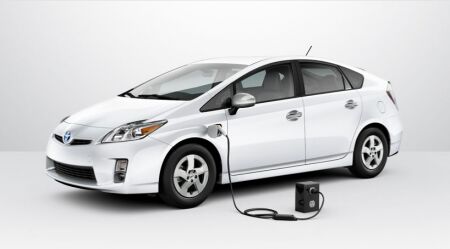
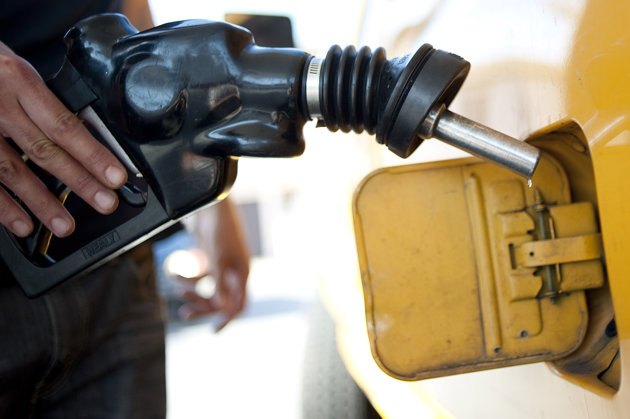
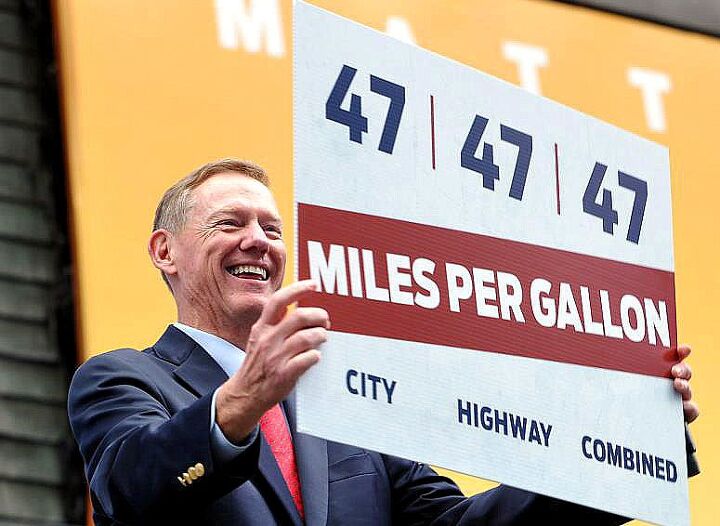
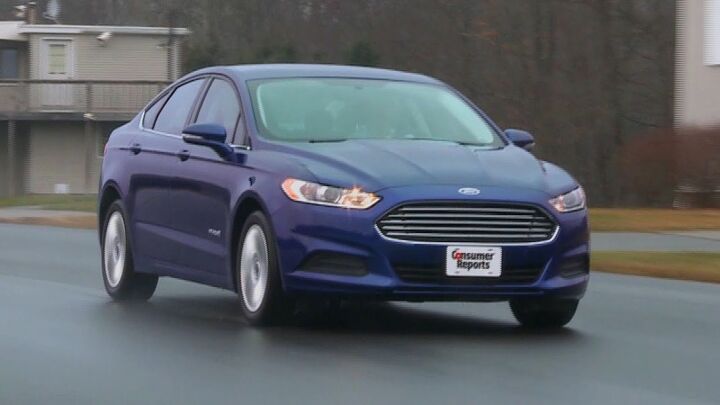

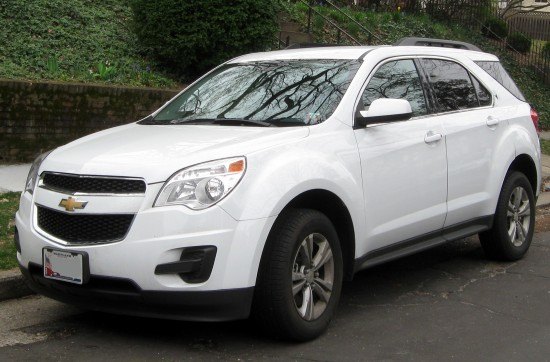



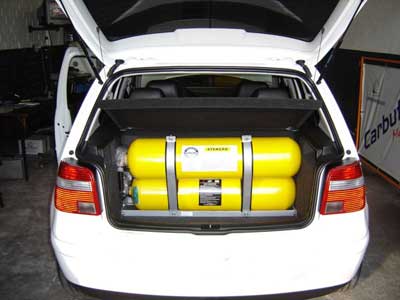
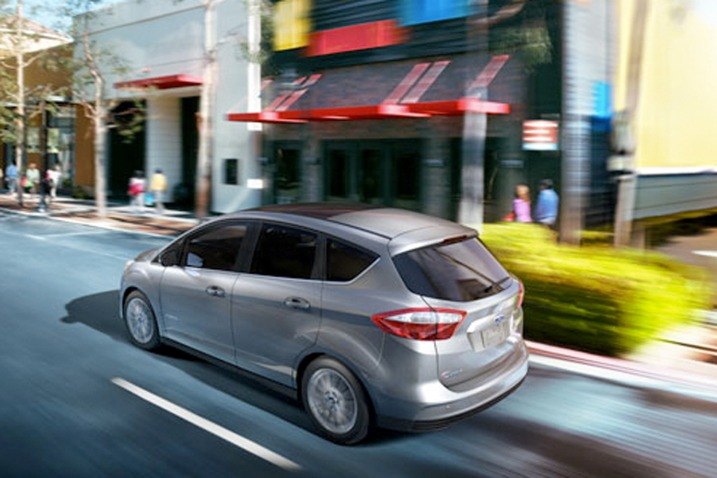
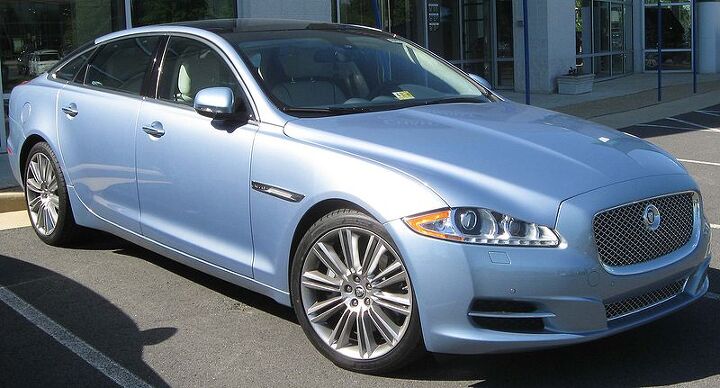
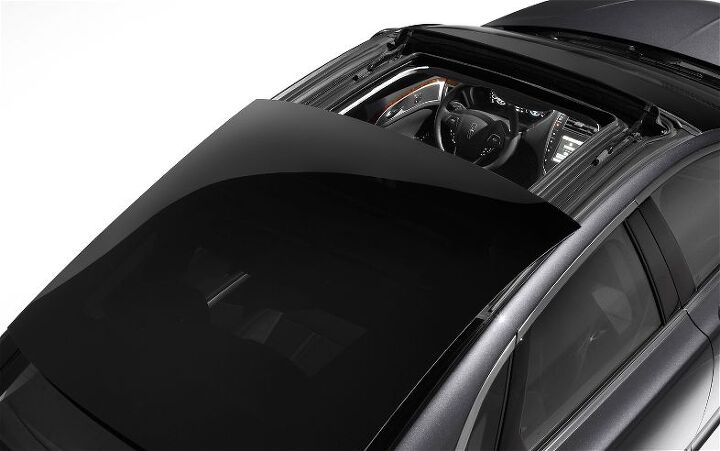
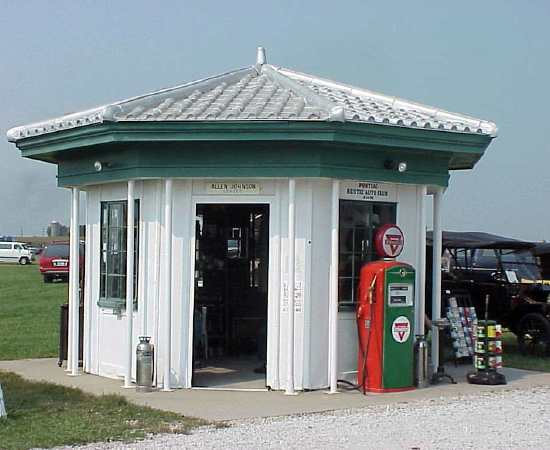
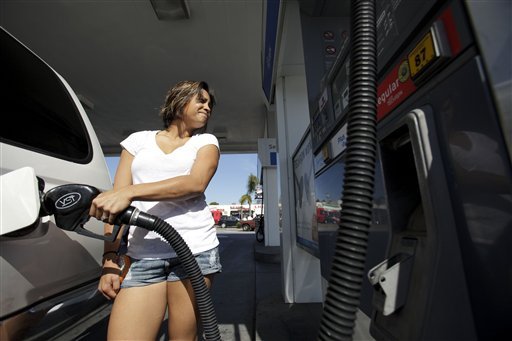

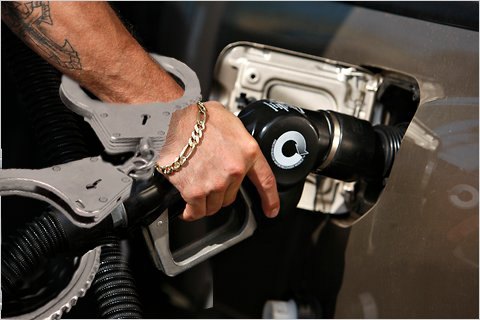
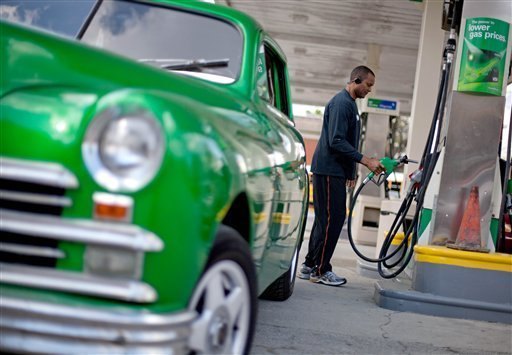



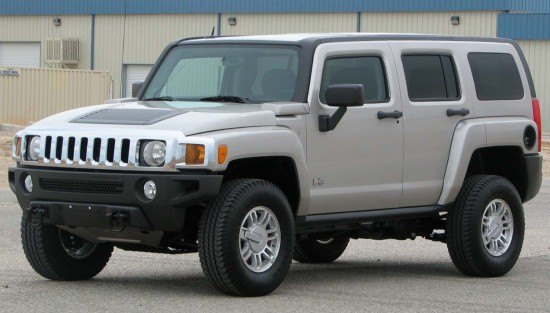

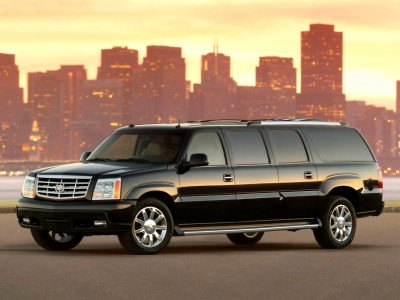
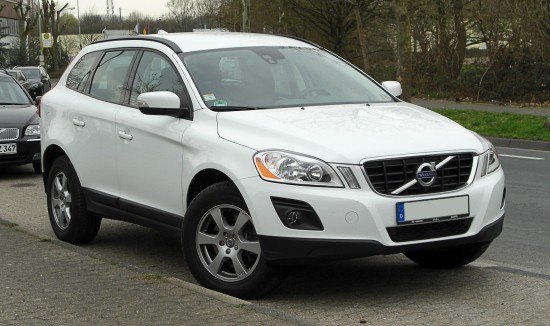
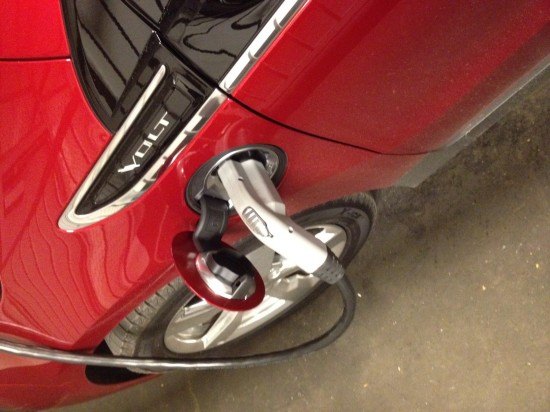
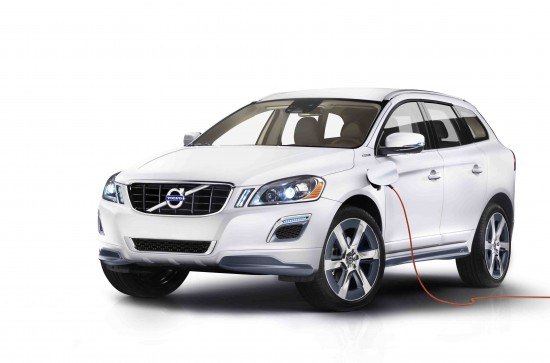
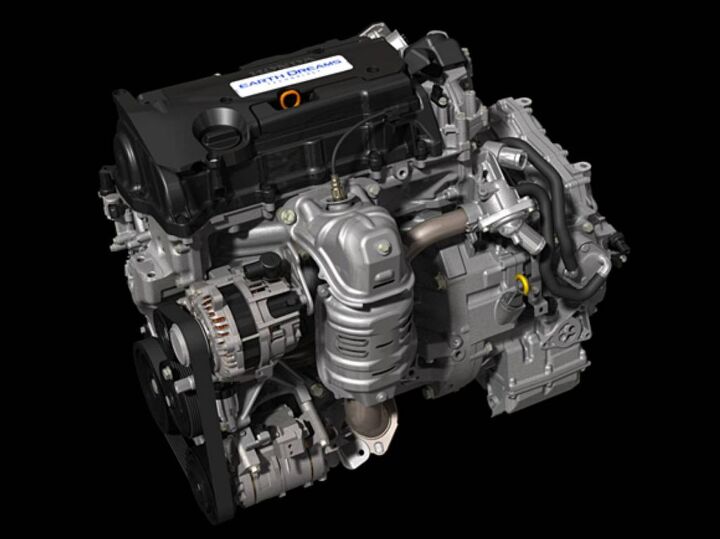
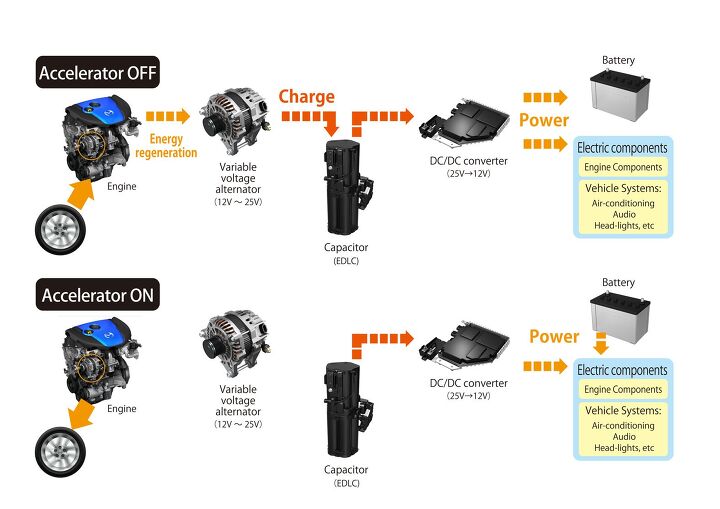

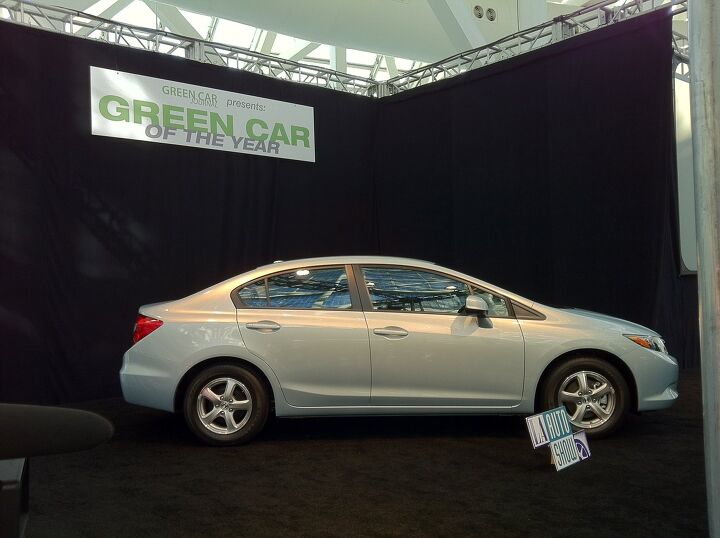


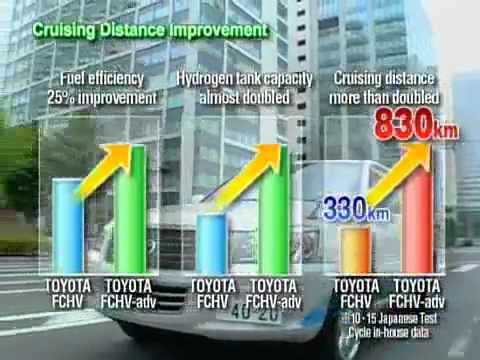

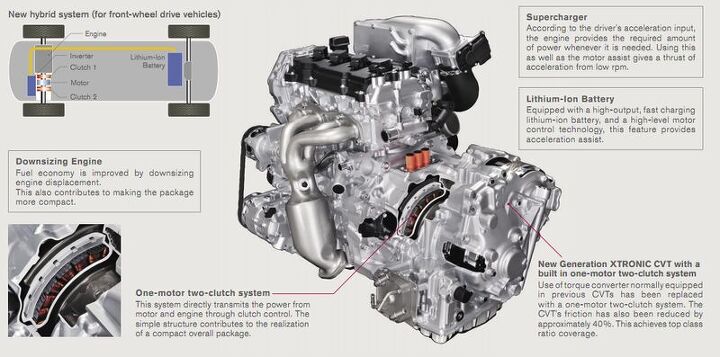


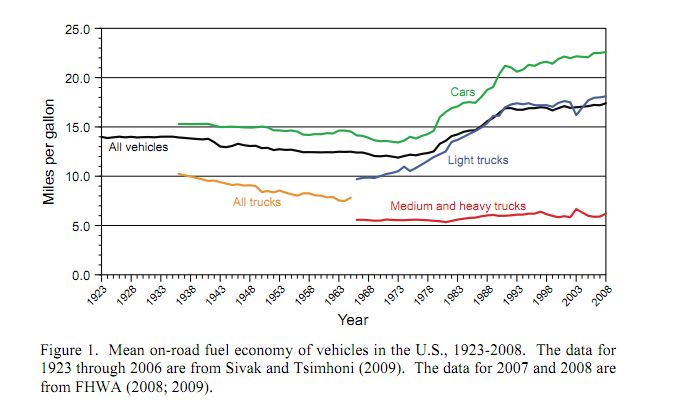

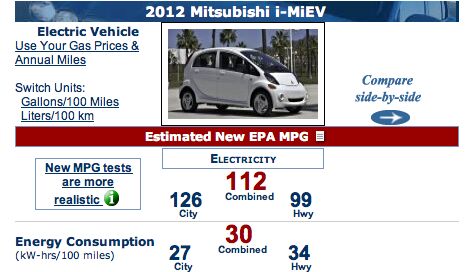













Recent Comments